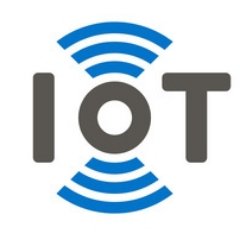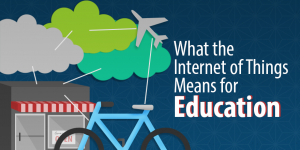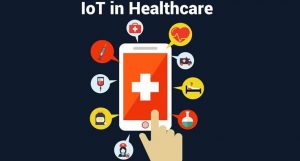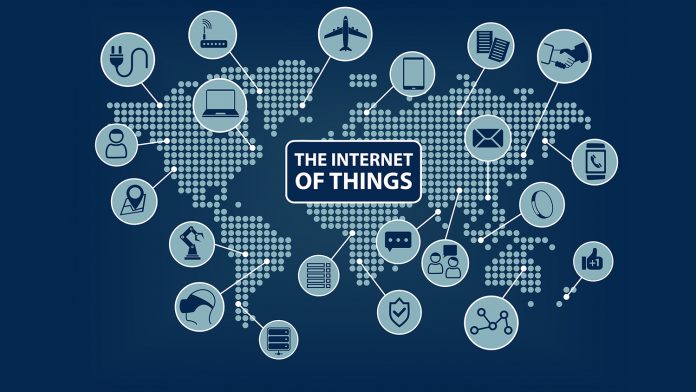In the first part of this series, a basic idea of the Internet of Things (IoT) was given with its implications for businesses and users. This part will elaborate on some of the major IoT based projects being funded by Ignite – Pakistan’s national technology fund supported by the Ministry of Information Technology and Communication.
The third part in this series will elaborate on some of the major IoT-based projects funded at the National Incubation Centres in Karachi, Lahore, and Islamabad.
The Internet of Things (IoT), is a phenomenon that simply connects and integrates two or more devices to make them interoperable. This interoperability enhances the functional capacity of these devices (which can be anything from a lamp, TV, to a vehicle) to essentially make our lives easier by performing tasks for us.
Ignite’s CEO, Yusuf Hussain, when asked how the internet of things is changing the tech landscape in the country, and how Ignite is supporting disruptive technology to bring out into the open, innovative ideas from students, graduates, and scientists, said “As with other tech systems, Ignite funds and incubates IoT based startups that seek to solve meaningful problems like curbing energy losses, enhancing performance of sportsmen, integrate healthcare systems, make education digital, and streamline microchip processes“.

“Ignite supports all innovative technology solutions which have the capacity to solve our country’s problems. We focus on projects which can make the lives of our people easier and portray an innovative and positive image of the country abroad so that tech stakeholders are comfortable investing in the country“, Yusuf added.
Here are some IoT based projects which aim to solve some of the country’s needs in industries such as IT, Energy, Education, and Healthcare.
Xbits: A differentiated services SDN-enabled Internet Exchange Point
Industry: Information Technology
Local peering of internet traffic has lots of advantages for both network operators and end-users alike as it allows two internet networks to connect and exchange traffic.
Presently, Pakistan lags the infrastructure for establishing local peering exchanges and faces challenges such as lack of peering agreements between operators, cost considerations as well as suitable models to offer differentiated services at Internet Exchange Points (IXPs).

There is only one existing peering point in Pakistan, which is used primarily as a transit facility. Two additional peering points are also presently underway between two industry stakeholders.
Xbits is a project that aims to provide a software-defined internet exchange point (SDX) architecture with a framework to offer differentiated services at IXPs, customized specifically for the needs of the local internet community. Software-Defined Networking (SDN) holds potential in terms of lower infrastructure costs and abstraction of network functionality in separate control and data planes.
This solution will be rolled out in collaboration with the Pakistan Telecommunication Authority (PTA) for local telecoms, ISPs and data centres.
CricFlex: Wearable tech for Cricketers
Industry: Sports
In a cricket-crazy nation, it makes sense to have a product dedicated to enhancing the performance of batsmen – especially when the overall quality and statistics of batsmen are on the decline.
This 3D automated live cricket batting coach is designed to extract live 3D human body joint data (20 joints) while batsmen play their shots.

The movement of batsmen’s joints is recorded in the database and used to extract the best movements and variations for the specific batsmen who use this technology, in a bid to figure out the best playing techniques for the batsmen to enhance their performance.
By aligning skeletons and finding differences in joint movements between two players, (the trainee and an expert) while playing the same ball, the system identifies flaws in the trainee’s technique and provides recommendations for improvement as a result.
Monolithic CMOS Microsystems for Structural, Chemical, and Bio-Hazard Detection
Industry: Information Technology
This project focuses on structural, chemical and bio-hazard detection and prediction using a smart fusion of micro-sensor systems, monolithically integrated inside a CMOS microchip – suitable as an autonomous sensing-node of a wireless sensor network (WSN).
The embedded sensors can be used for detection of oil/gas leakages, analyzing vibration signatures of structures such as buildings etc.

The main aim of this project is to utilize the upcoming trend of FAB-supported monolithic microsystems manufacturing, i.e. micro-sensors and micro-electronics inside the same CMOS die.
This monolithic integration is key to developing a low-cost, low-power, compact, robust and high-performance system which can be produced in batches of millions at a time.
Innovative Digital Curriculum for Science Education
Industry: Education
This project aims to build a comprehensive interactive digital curriculum for science subjects making the subject enjoyable and easier to learn for Grade 6, 7 and 8 students.
Based on the National Science Curriculum and fully aligned with the Federal Textbook Board standards, this project is specifically designed to raise curiosity and awareness and promote conceptual understanding.

It focuses on learning based on audio and visual aids where students will be able to apply contextual knowledge and take advantage of interactive learning with feedback loops. The digital curriculum will include video content, activities and games, assessments and comprehensive digital taxonomies – and will be available in both English and Urdu.
i-Hospital
Industry: Healthcare
iHospital is an award-winning software-based medical diagnostic and analysis tool which integrates with existing hospital management and information systems. It won silver awards at Asian Pacific ICT Alliance Awards (APICTA) in 2012 and 2013, held in Brunei Darussalam and Hong Kong.
Top research talent from CASE and EME College NUST has joined hands with CARE (Pvt) Ltd. to make iHospital a commercial success.

Eye to I is an Ophthalmology related project under the iHospital umbrella and aims to develop a self-diagnosis system for screening and diagnosis of four retinal diseases; i.e. Retinopathy, Glaucoma, Edema and Macular Degeneration; and also provides the facilities of retinal image acquisition, analysis, grading and a telemetric system.
One part of the proposed solution will use state-of-the-art ‘Machine Learning’ techniques for accurate retinal image analysis and diagnosis to prevent sudden vision loss. The other part of the project is building a specialized hospital information system supporting an intelligent diagnosis of retinal diseases. This system will be compatible with existing healthcare infrastructure provided by the government, e.g. Basic Health Units (BHUs).
Energy Watch: Preventing Pilferage, Saving Costs
Industry: Energy, Power
This project is for developing a sensor-based network for real-time monitoring and data acquisition of Gas Distribution Network (GDN), for possible malicious activities and theft detection.
According to the Organization for Economic Cooperation and Development (OECD), Unaccounted-for-Gas (UFG) averages at 1-2% globally. However, in Pakistan UFG is at an alarming 13% for both SNGPL and SSGC.
Every per cen t of gas loss amounts to a loss of $28 million (Rs2.5 billion) accumulating to an annual loss of over $334 million to the national exchequer. Major contributing anomalies towards UFG are theft, meter tampering, false billing, and illegal connections. This project aims to target each one of these anomalies with an aim to reduce UFG down to 1-2%, in line with the global average, and resultantly, save billions of rupees for the national exchequer.
t of gas loss amounts to a loss of $28 million (Rs2.5 billion) accumulating to an annual loss of over $334 million to the national exchequer. Major contributing anomalies towards UFG are theft, meter tampering, false billing, and illegal connections. This project aims to target each one of these anomalies with an aim to reduce UFG down to 1-2%, in line with the global average, and resultantly, save billions of rupees for the national exchequer.
The third part in the IoT series will list and describe some of the breakthrough IoT-based projects funded at the National Incubation Centres in Lahore, Karachi, and Islamabad. Stay tuned!




